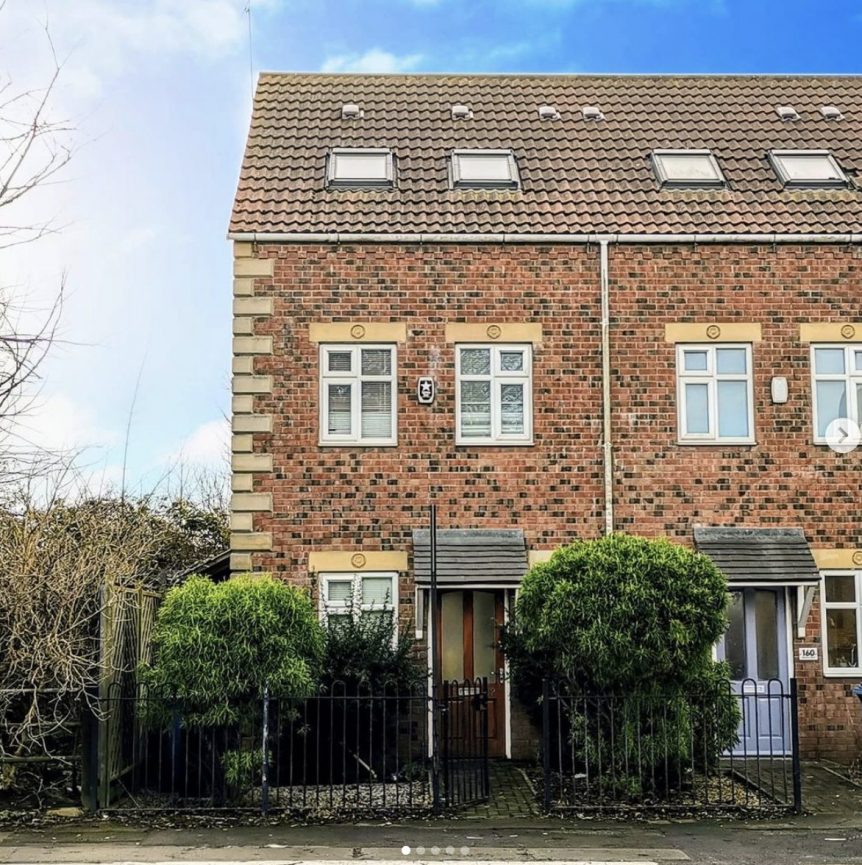What’s the first thing that springs to mind when you hear the word ‘sun’?
Whatever your answer is, we can pretty much guarantee it’s not the UK.
And yet despite our less than charitable British weather, solar panels are becoming an increasingly hot topic.
That’s because, even with a significant initial outlay, solar panels can help us to reduce the amount we spend on energy bills over the long term.
In fact, generating your own power through the power of solar can shave up to £500 a year off your bills, while research shows it can add around 4.1% to a property’s value.
You can even sell any excess energy you don’t use back to the National Grid.
The pros of having solar panels on your home
- Lower your energy bills.You can reduce the amount of money you spend on powering your home by up to £500 per year. You can also earn additional money by selling any excess power you generate back to the National Grid through the Smart Export Guarantee.
- Security against rising energy costs.Generating your own heat or electricity through renewable sources like solar panels means you are less exposed to the rising cost of energy in future. Gas and electricity prices have risen dramatically over the past decade, and show no signs of slowing down. Solar panels mean you need to buy less energy from utility companies, and can save more money if prices continue to increase.
- Low maintenance costs.Once solar panels are installed, the cost to maintain them is very low. You’ll only need to clean them once or twice a year to keep them operating efficiently.
- Built to last.Most reliable solar panel producers offer a warranty of between 20 – 25 years. Once fitted, you will need to spend very little on repairs or replacements as there are no moving parts. After 5 –10 years, you may need to change the inverter that converts solar energy into heat and electricity.
- Reduce your carbon footprint.Generating power sustainably reduces your carbon footprint by cutting down on your consumption of electricity generated by burning fossil fuels. This helps cut air pollution, protect the environment, and ease the burden on communities affected by climate change.
The cons of having solar panels on your home
- Cost.You will need to make a rather hefty investment when buying and installing solar panels on your home. While interest-free finance plans can help spread the cost, the average price of a 4kW solar panel system is around £6,500.
- Weather dependent.Although solar panels will generate power when it is cloudy, they do need direct sunshine in order to get the maximum output.
- Inconsistent energy.Solar panels are great for generating energy on sunny days. But they don’t work at night, and the amount of energy they generate can be affected by a number of other factors, too. This includes the time of day, time of the year, the intensity of sunlight, cloud cover, location, and even foliage surrounding your property. Panels facing east or west produce around 15 – 20% less energy than south-facing panels.
- Visual impact.Solar panels certainly do divide opinion when it comes to appearance. Some people believe they’re an unsightly eyesore. Others think they look sleek and modern. While integrated solar panels and solar tiles are becoming less obtrusive, they will invariably change the visual appearance of your home.
- Long-term investment.Installing a solar panel system is a long-term commitment. It can take anywhere from 11 – 15 years before you ‘break even’, and if you are planning to move house, you can’t just easily uninstall them and take them with you.
Instalment costs versus savings
While prices will vary depending on brand, size, and installation costs; most homeowners will be parting with around £6,500 for a 4kW solar panel system.
Maintenance costs are low though, and panels can last up to 25 years. However, during this time, the inverter may need to be replaced, which typically costs around £800.
You can expect to save between £210 and £520 per year on energy costs with the average 4kW system, meaning it can take 11 to 15 years for that initial outlay to be ‘repaid’.
These savings will almost certainly be higher for people who work at home, or who have higher daytime usage and are able to use the energy generated.
You can make between £80 to £110 per year selling excess energy back to the grid, based on an average tariff of 3.99p per kWh.
Tariffs vary between 1p and 15p per kWh paid back into the system.
It’s also worth factoring in a potential rise in property value due to your new panels, which according to research from Zillow estate agents could be up to 4.1%.
So, for a £272,259 home, that would be an £11,162 increase in the sale value for an outlay of £6,500 on solar panels (2.4% of house value).
Weigh up all your options
Solar panels are a worthy addition to any property, but only if you treat them as a long-term investment.
While the initial outlay may seem a little on the steep side, as long as you generate enough electricity, and stay in the same house long enough, you’ll be saving on energy bills and pushing up the value of your property.
On top of that, you’ll also be doing your bit to protect the environment.
Before you do take the plunge though, remember to factor in things like the direction of your home, and the average amount of sunshine your area receives.
If you found this useful, you’ll also really like:

